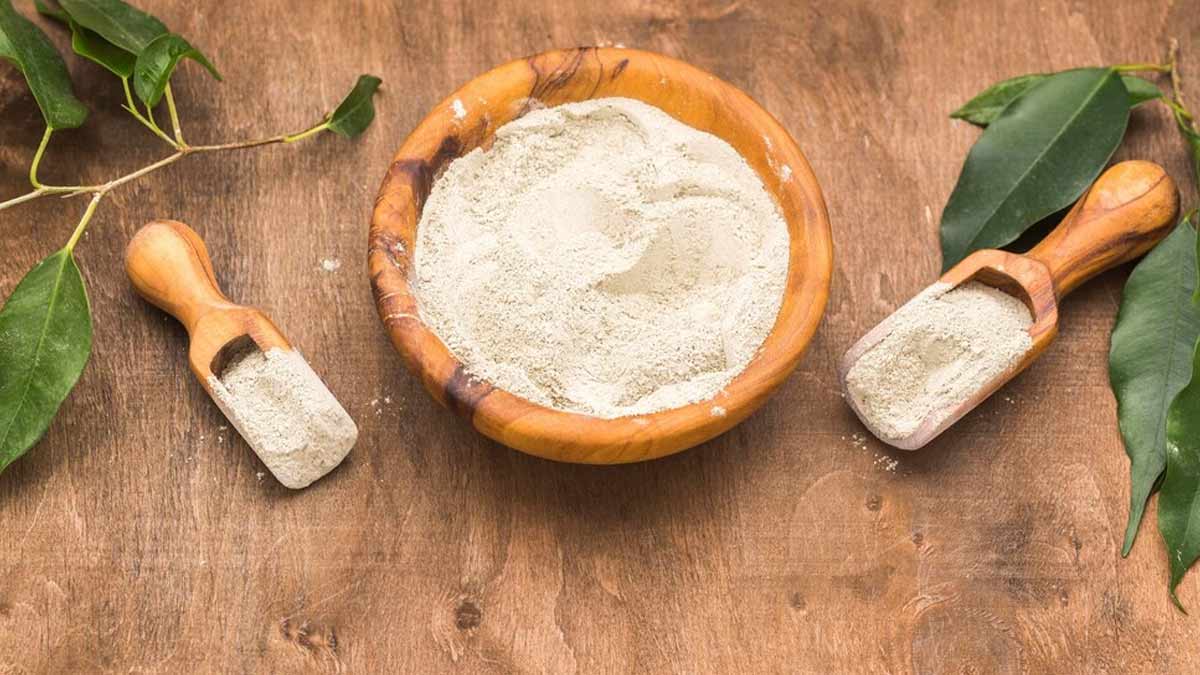
Sweet potatoes are a nutritious, tasty, and comforting winter food that offers various health benefits. They are known for their versatility and, therefore, can be consumed roasted, baked, mashed, fried, or incorporated into soups and stews.
Table of Content:-
Interestingly, gluten-intolerant people, especially those with celiac disease, can also consume sweet potato flour as a wheat flour substitute. Celiac disease is a condition in which people have a sensitivity to a protein called gluten, found in foods containing wheat, which can lead to digestive issues. Hence, choosing a gluten-free alternative like sweet potato flour can be beneficial. But the advantages are not limited to its gluten-free richness. Here’s what to know...
Also Read: Regular Potato Vs Sweet Potato: Which One Is More Healthier?
High In Fibre And Good For Digestion

Besides being gluten-free, sweet potato flour is also a good source of both soluble and insoluble fibre. While soluble fibre, found in foods like oats and legumes, dissolves in water and forms a gel-like substance, insoluble fibre, found in wheat bran and vegetables, does not dissolve in water and adds bulk to the stool. Both help promote a healthy gut. A study published in the journal Frontiers in Nutrition also found that sweet potatoes are also rich in prebiotics, which help in the growth of healthy gut bacteria and improve digestion.
Rich In Antioxidants
Sweet potatoes are high in antioxidants and anti-inflammatory properties. It contains various antioxidants, such as beta-carotene, which is converted into vitamin A in the body. According to a study published in the journal Circulation Research, higher blood levels of beta-carotene in people were linked to longevity and lower risks of dying from heart disease, stroke, cancer, and other illnesses. Researchers suggested that eating plenty of fruits and vegetables rich in beta-carotene may be a simple and effective way to improve overall health and lifespan.
Good For Heart Health

Sweet potatoes are rich in potassium while also helping support heart health. Potassium balances sodium effects in the body. It helps reduce fluid retention by facilitating sodium excretion through urine, thereby relaxing blood vessel walls and ultimately lowering blood pressure and reducing the risk of hypertension. As per a 2010 British Medical Journal (BMJ) study, higher potassium intake not only lowers blood pressure in individuals with hypertension but is also linked to a 24% reduced risk of stroke.
High blood pressure is a major risk factor for heart disease, as per the US Centers for Disease Control and Prevention (CDC).
Also Read: Is Your Heart In Good Shape? 5 Important Tests That Can Tell You
Improve Blood Sugar Levels

Even if they are sweet and rich in carbohydrates, sweet potato flour isn't bad for diabetes patients. The natural sugars found in sweet potatoes have a lower Glycaemic Index (GI) compared to refined sugars, which means that sweet potato flour may have a gentler impact on blood sugar levels. Additionally, the high content of fibre in sweet potatoes also helps prevent or manage diabetes, according to the CDC.
Conclusion
For those looking for a healthy flour alternative, sweet potato flour is no doubt one of the best choices. It is a wholesome and versatile gluten-free substitute, packed with essential nutrients, fibre, and antioxidants. It not only supports digestive health but also provides a lower GI option for blood sugar regulation, and with its high potassium content, it contributes to heart health by balancing the effects of sodium, potentially reducing the risk of hypertension and stroke. Therefore, incorporating sweet potato flour into one's diet not only enhances the overall nutritional profile but also adds a flavourful experience to gluten-free cooking.
Also watch this video
Read Next
PM Modi To Follow Sattvic Diet During 11-Day Anushthan: What Is It And What Are Its Benefits?
How we keep this article up to date:
We work with experts and keep a close eye on the latest in health and wellness. Whenever there is a new research or helpful information, we update our articles with accurate and useful advice.
Current Version